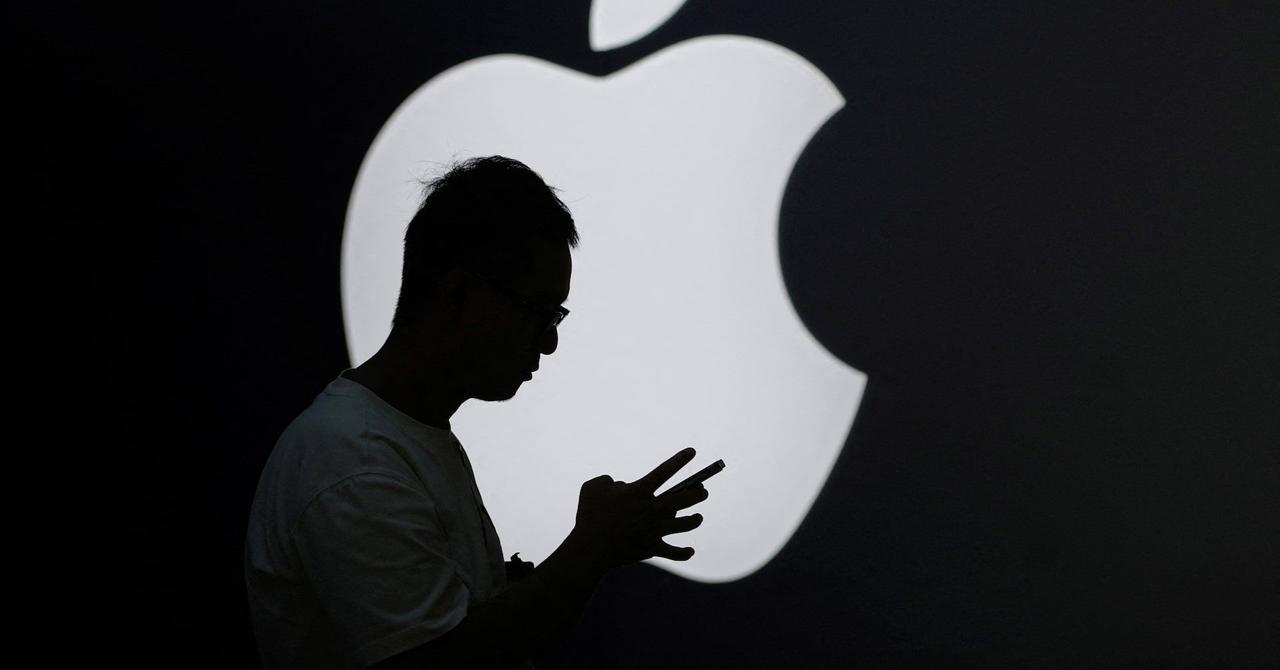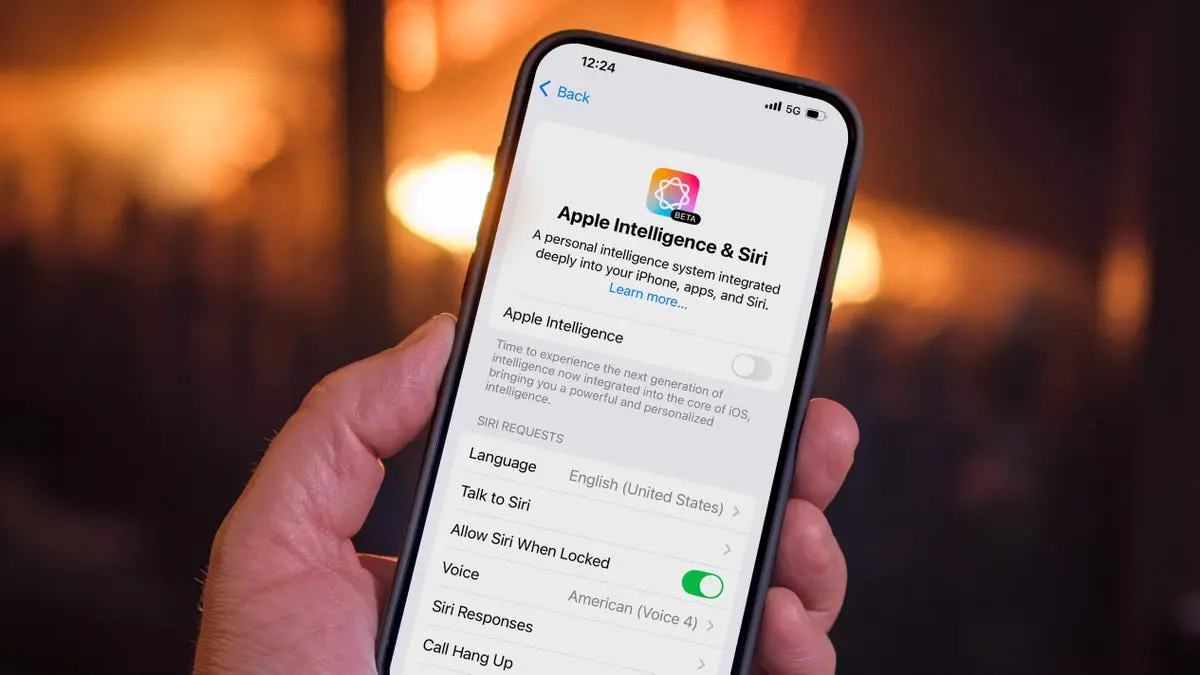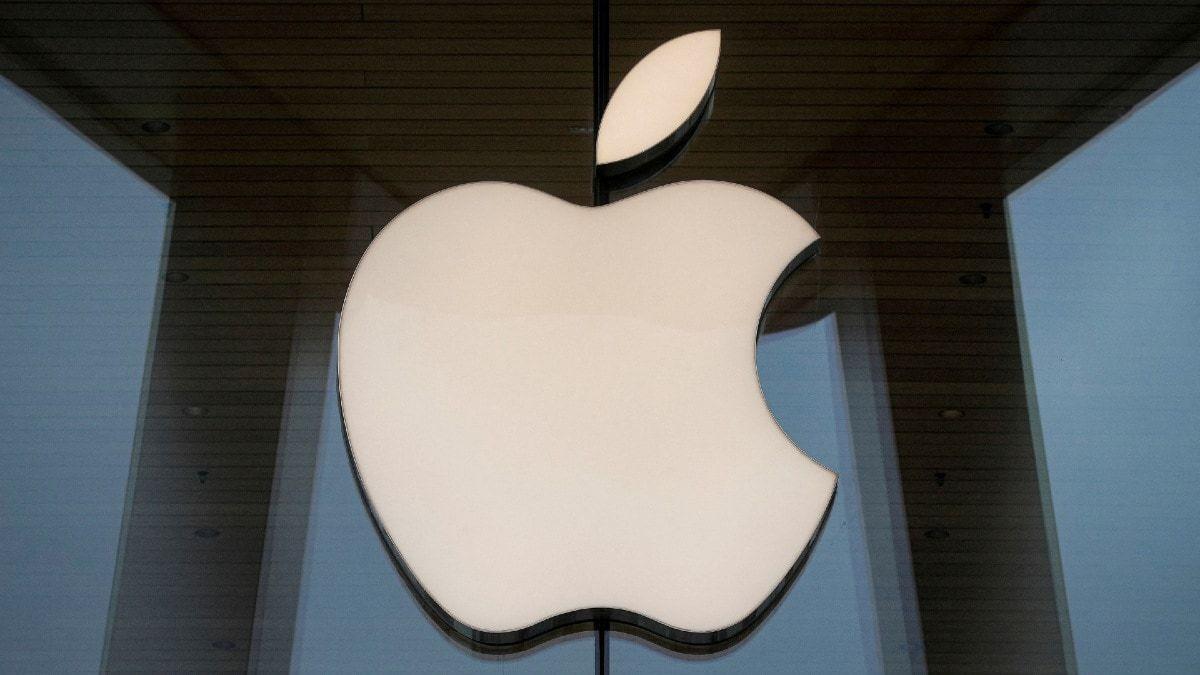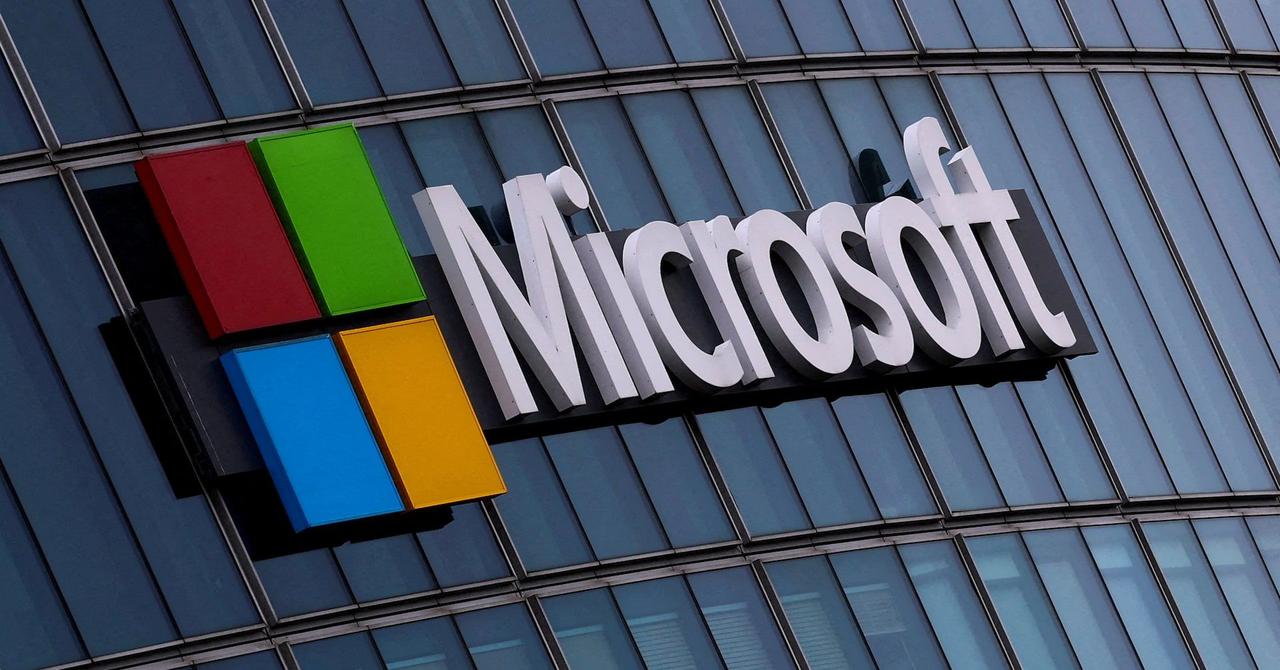Apple Faces Copyright Lawsuit Over AI Training with Pirated Books
9 Sources
9 Sources
[1]
Apple Gets Hit With AI Copyright Lawsuit Days Before iPhone 17 Event
Two authors, Grady Hendrix and Jennifer Roberson, are suing Apple, alleging the company violated their copyright protections and illegally acquired and used their books to train its AI, according to a complaint filed Friday in the US District Court for the Northern District of California in San Francisco. The authors claim Apple used a software program called Applebot to scrape data from "shadow libraries" like Books3. The authors' novels were included in the pirated library and thus used to develop Apple's AI without their consent. "Apple has not attempted to pay these authors," the complaint reads. "Apple did not seek licenses to copy and use the copyrighted books provided to its models. Instead, it intentionally evaded payment by using books already compiled in pirated datasets." Apple did not immediately respond to a request for comment. Don't miss any of our unbiased tech content and lab-based reviews. Add CNET as a preferred Google source. Data sources like these are immensely valuable to companies developing generative AI models. They need huge quantities of high-quality, human-created content to improve AI models, to make them sound more coherent and human-like. But negotiating with and paying creators for access to their works can be costly and time-consuming, which is why we see so many copyright infringement lawsuits. On the same day the Apple lawsuit was filed, Claude-maker Anthropic announced it would pay $1.5 billion to authors in a class-action piracy lawsuit, resulting in about $3,000 per pirated work. It was derived from a similar copyright case where Anthropic won part of its case, with the judge ruling Anthropic's use of the copyrighted material was fair use. Two days after that initial ruling, Meta won a similar case. (Disclosure: Ziff Davis, CNET's parent company, in April filed a lawsuit against OpenAI, alleging it infringed Ziff Davis copyrights in training and operating its AI systems.) Copyright is one of the most important and controversial legal issues for AI companies and creators. While some tech companies have struck multimillion-dollar deals with publishers to access their content, others are duking it out in court in cases like these. Tech companies have been fighting hard for fair use exceptions, a legal concept in copyright law that lets people use copyrighted content without the rights holders' permission, like for education or journalism. Creators are fighting to ensure AI companies aren't allowed to ignore decades of copyright law precedent just to avoid paying them licensing fees and to ensure they're able to potentially opt out of having their work used to train AI systems. Apple released its AI last year during its annual WWDC developers conference. The iPhone-maker has had a slow entrance into the AI race, marked by delays of its promised smarter Siri. By contrast, Samsung, Google and Motorola phones are all chock-full of Gemini and other AI -- for better or worse -- whereas Apple's main AI tool is the ability to use ChatGPT via Siri voice commands. But even that existing Apple Intelligence feature is under fire. Elon Musk filed a lawsuit against Apple and ChatGPT's parent company OpenAI earlier this summer, alleging the deal is an "anticompetitive scheme" for blocking out other AI products, like Musk's own Grok. All of this comes just days before Apple's annual fall event, where it is expected to drop the iPhone 17. It's the biggest event of the year for Apple and its enthusiasts, with the next generation of software, iOS 26, expected to drop for all iPhone users in the days following the event. Any AI news we hear at tomorrow's "Awe dropping" event is likely to crop up in future developments in this lawsuit.
[2]
Apple Sued Over Alleged Use of Pirated Books for AI Training
Don't miss out on our latest stories. Add PCMag as a preferred source on Google. Apple is the latest tech company to get sued over alleged use of pirated books for AI training. As Reuters reports, in a lawsuit filed in the federal court in Northern California, authors Grady Hendrix and Jennifer Roberson accuse Apple of using their copyrighted works without consent or compensation to train the company's AI models. The authors make this claim based on details found in Apple's paper on its OpenELM model. "Apple is building part of this new enterprise [Apple Intelligence] using Books3, a dataset of pirated copyrighted books that includes the published works of Plaintiffs and the Class," the lawsuit claims. "Apple used Books3 to train its OpenELM language models. Apple also likely trained its Foundation Language Models using this same pirated dataset." Books3 was an online collection of over 196,000 pirated books. Many AI companies, including Meta, have reportedly used the dataset for AI training purposes. It was, however, taken down in 2023 after Danish anti-piracy group Rights Alliance submitted a DMCA request. Given the number of works Apple may have infringed upon, the plaintiffs, Hendrix and Roberson, have requested the court to turn their complaint into a class action and block the company from further infringement of this kind. They also seek compensation for monetary damages. Books3 was the subject of another major lawsuit recently. A group of authors sued the creator of Claude, Anthropic, last year for using the pirated dataset for its AI training purposes. Last month, the AI startup decided to settle the case, agreeing to pay the authors a record $1.5 billion. Since over 500,000 books were allegedly infringed upon, each work could yield about $3,000. Perplexity and OpenAI also face similar copyright infringement lawsuits. Disclosure: Ziff Davis, PCMag's parent company, filed a lawsuit against OpenAI in April 2025, alleging it infringed Ziff Davis copyrights in training and operating its AI systems.
[3]
Apple sued by authors over use of books in AI training
Sept 5 (Reuters) - Technology giant Apple (AAPL.O), opens new tab was accused by authors in a lawsuit on Friday of illegally using their copyrighted books to help train its artificial intelligence systems, part of an expanding legal fight over protections for intellectual property in the AI era. The proposed class action, opens new tab, filed in the federal court in Northern California, said Apple copied protected works without consent and without credit or compensation. "Apple has not attempted to pay these authors for their contributions to this potentially lucrative venture," according to the lawsuit, filed by authors Grady Hendrix and Jennifer Roberson. Apple and lawyers for the plaintiffs did not immediately respond to requests for comment on Friday. The lawsuit is the latest in a wave of cases from authors, news outlets and others accusing major technology companies of violating legal protections for their works. Artificial intelligence startup Anthropic on Friday disclosed in a court filing in California that it agreed to pay $1.5 billion to settle a class action from a group of authors who accused the company of using their books to train its AI chatbot Claude without permission. Anthropic did not admit any liability in the accord, which lawyers for the plaintiffs called the largest publicly reported copyright recovery in history. In June, Microsoft (MSFT.O), opens new tab was hit with a lawsuit by a group of authors who claimed the company used their books without permission to train its Megatron artificial intelligence model. Meta Platforms (META.O), opens new tab and Microsoft (MSFT.O), opens new tab-backed OpenAI also have faced claims over the alleged misuse of copyrighted material in AI training. The lawsuit against Apple accused the company of using a known body of pirated books to train its "OpenELM" large language models. Hendrix, who lives in New York, and Roberson in Arizona, said their works were part of the pirated dataset, according to the lawsuit. Reporting by Mike Scarcella; Editing by David Gregorio Our Standards: The Thomson Reuters Trust Principles., opens new tab
[4]
Apple faces lawsuit over alleged use of pirated books for AI training
Two authors have filed a lawsuit against Apple, accusing the company of infringing on their copyright by using their books to train its artificial intelligence model without their consent. The plaintiffs, Grady Hendrix and Jennifer Roberson, claimed that Apple used a dataset of pirated copyrighted books that include their works for AI training. They said in their complaint that Applebot, the company's scraper, can "reach 'shadow libraries'" made up of unlicensed copyrighted books, including (on information) their own. The lawsuit is currently seeking class action status, due to the sheer number of books and authors found in shadow libraries. The main plaintiffs for the lawsuit are Grady Hendrix and Jennifer Roberson, both of whom have multiple books under their names. They said that Apple, one of the biggest companies in the world, did not attempt to pay them for "their contributions to [the] potentially lucrative venture." Apple has "copied the copyrighted works" of the plaintiffs "to train AI models whose outputs compete with and dilute the market for those very works -- works without which Apple Intelligence would have far less commercial value," they wrote in their filing. "This conduct has deprived Plaintiffs and the Class of control over their work, undermined the economic value of their labor, and positioned Apple to achieve massive commercial success through unlawful means." This is but one of the many lawsuits filed against companies developing generative AI technologies. OpenAI is facing a few, including lawsuits from The New York Times and the oldest nonprofit newsroom in the US. Notably, Anthropic, the AI company behind the Claude chatbot, recently agreed to pay $1.5 billion to settle a class action piracy complaint also brought by authors. Similar to this case, the writers also accused the company of taking pirated books from online libraries to train its AI technology. The 500,000 authors involved in the case will reportedly get $3,000 per work.
[5]
Apple accused of illegally training AI models on pirated books - 9to5Mac
A new proposed class action suit was filed in the federal court in Northern California today, accusing Apple of illegally using books to train its AI models. Here are the details. As reported by Reuters, authors Grady Hendrix and Jennifer Robertson are accusing Apple of using a pirated dataset, in which their work was included. From the lawsuit: "But Apple is building part of this new enterprise using Books3, a dataset of pirated copyrighted books that includes the published works of Plaintiffs and the Class. Apple used Books3 to train its OpenELM language models. Apple also likely trained its Foundation Language Models using this same pirated dataset." The accusation is based on details provided by Apple on its paper about OpenELM, an open-source model the company made available on Hugging Face last year. The paper mentions RedPajama as one of the datasets used in the model. RedPajama, in turn, uses a dataset called Books3, which, as the lawsuit claimed, is "a known body of pirated books." The authors are requesting the court to allow the lawsuit to proceed as a Class action against Apple, and ask for the following remedies following a jury trial: Coincidentally (or maybe not), the lawsuit comes on the heels of a record $1.5 billion settlement made by Anthropic in a very similar case. Interestingly, Meta faced a similar trial recently, but the case went its way, as the judge decided that its use of copyrighted books to train its AI models fell under fair use, a sentiment echoed recently by President Trump: "You can't be expected to have a successful AI program when every single article, book or anything else that you've read or studied, you're supposed to pay for. (...) You just can't do it, because it's not doable." Do you think authors should be compensated for the use of their books to train AI models? Let us know in the comments.
[6]
After Anthropic and Midjourney, Now Apple Faces Copyright Lawsuit Over AI
The plaintiffs are asking for a jury trial and monetary damages A fresh lawsuit was filed against Apple on Friday over allegedly training its artificial intelligence (AI) on copyrighted books. Two authors have alleged that the Cupertino-based tech giant used datasets containing pirated versions of their books to train the OpenELM AI model, which the company released as an open-source model last year. This particular large language model (LLM) also came under fire in 2024, after a report claimed that a part of its dataset contained the video subtitle data of YouTube. Authors File Lawsuit Against Apple Over AI Training The lawsuit, filed in the US federal court in Northern California on Friday, proposes a class action suit against Apple. Authors Grady Hendrix and Jennifer Robertson have accused the tech giant of using illegally obtained copyrighted books to train its LLM, OpenELM. As per the lawsuit, Apple's model card of OpenELM, which was added to Hugging Face, highlights that one of the datasets used to train the model includes RedPajama. The company obtained from the Internet, where many annotators release public datasets with license-free content. RedPajama, based on the allegations, contained a dataset called Books3, which is claimed to be "a known body of pirated books." The authors claim that their books were also part of that dataset. The plaintiffs are now requesting the court to let the lawsuit continue as a class action against the iPhone maker. Following a jury trial, the suit also seeks class statutory damages, compensatory damages, restitution, disgorgement, and other forms of relief. It also asked the court to order the destruction of any of Apple's AI models that were trained on this data. Notably, last year, the company had said that OpenELM does not power either its AI features under the Apple Intelligence branding or other machine learning features in its devices. Apple highlighted that the model was created as a "contribution to the research community." Separately, Anthropic disclosed in a court filing on Friday that it has now agreed to pay $1.5 billion (roughly Rs. 13,200 crore) to settle the ongoing class action from a group of authors. These authors had sued the AI startup for training its AI models on their copyrighted work without consent. Notably, the Claude-maker did not admit any liability as part of the settlement.
[7]
Apple Faces Class-Action Lawsuit Over Reported Use Of Copyrighted Books To Train AI - Apple (NASDAQ:AAPL), Amazon.com (NASDAQ:AMZN)
Apple Inc. AAPL was hit with a class-action lawsuit on Friday alleging the tech giant illegally used copyrighted books without permission to train its artificial intelligence systems. Authors Grady Hendrix and Jennifer Roberson filed the complaint in Northern California federal court, claiming Apple copied protected works without consent, credit, or compensation, Reuters reported. Check out the current price of APPL stock here. The lawsuit specifically targets Apple's "OpenELM" large language models, accusing the company of using a known dataset of pirated books. Both plaintiffs' works allegedly appeared in the unauthorized training materials. Industry-Wide Copyright Battle Intensifies The tech giant's lawsuit contributes to the rising number of legal challenges over AI training practices in the industry. Microsoft Corp. MSFT faced similar claims in June regarding its Megatron AI model, while Meta Platforms Inc. META and Microsoft-backed OpenAI continue defending against copyright infringement allegations. See Also: Scott Bessent Says 'Fed Must Change Course' As Trump Weighs Jerome Powell Successors, Treasury Secretary Calls For 'Nonpartisan Review' This legal trend reflects broader industry tensions as AI companies struggle to balance innovation with intellectual property rights. Anthropic Settlement Sets $1.5 Billion Precedent The lawsuit comes days after Amazon.com Inc. AMZN and Alphabet Inc. GOOGL GOOG-backed Anthropic agreed to pay $1.5 billion to settle similar copyright claims. The settlement provides $3,000 per book for approximately 500,000 titles used to train Anthropic's Claude chatbot. Plaintiffs' lawyers called it the largest publicly reported copyright recovery in AI history, setting a precedent for future cases. Mixed Legal Outcomes Shape AI Landscape While some companies face substantial settlements, others have secured favorable rulings. Meta recently won summary judgment when a federal judge ruled its AI training practices constitute fair use under copyright law. The judge found no meaningful evidence of market dilution from Meta's use of copyrighted materials. With a strong Value Score of 72.35, Benzinga's Edge Stock Rankings indicate that AAPL has a positive price trend across all time frames. Know how its momentum lines up with other well-known names. Read Next: 'You Don't Want The Money To Grow?' -- Dave Ramsey Stunned As Caller With $880,000 Saved Fears A Higher Tax Bracket Image via Shutterstock Disclaimer: This content was partially produced with the help of AI tools and was reviewed and published by Benzinga editors. AAPLApple Inc$239.23-0.23%Stock Score Locked: Edge Members Only Benzinga Rankings give you vital metrics on any stock - anytime. Unlock RankingsEdge RankingsMomentum47.59Growth29.94Quality72.35Value8.65Price TrendShortMediumLongOverviewAMZNAmazon.com Inc$232.09-1.52%GOOGAlphabet Inc$235.001.01%GOOGLAlphabet Inc$234.701.03%METAMeta Platforms Inc$749.750.15%MSFTMicrosoft Corp$495.25-2.50%Market News and Data brought to you by Benzinga APIs
[8]
Apple Faces Copyright Lawsuit For AI Training On Pirated Books
Two book authors are asking for the destruction of Artificial Intelligence (AI) models that tech giant Apple trained on copyrighted material, as part of a lawsuit in the US Court for the Northern District of California. The proposed class action lawsuit accuses the tech company of training Apple Intelligence, a term that Apple uses for its AI tools across iPhones, MacBook, iPad, and other devices, on copyrighted works without consent or compensation The complaint argues that by copying and retaining copyrighted works for AI training, Apple infringed upon the authors' exclusive rights and thus violated the US Copyright Act. In addition to the destruction of Apple's infringing models and datasets, the plaintiffs are also pleading the court to award them with statutory damages and permanently prohibit Apple from using copyrighted material for AI training. The complaint alleges that Apple's OpenELM models, designed for on-device use are trained on Books3: a dataset that allegedly contains copyrighted works, include those owned by the plaintiffs. Apple released OpenELM models in April 2024, including variants that can store 270 million, 450 million, 1.1 billion, and 3 billion weights found in a training dataset. Notably, the pre-training dataset of these models contained a subset of RedPajama, which is a much bigger open-source dataset. A paper about OpenELM from Apple specified this subset to be the 'Books' component of RedPajama, which is actually a copy of the Books3 dataset. The plaintiffs claim their copyrighted works are part of this dataset, which Apple used to train OpenELM models. Based on the trajectory of datasets, the complaint argues that Apple effectively admitted to training its models on pirated copyrighted material. Additionally, the complaint levels the same charge against the Foundational Language Models (FLMs) that power Apple Intelligence. The complaint states that Apple revealed three training data sources for its FLMs. First, limited high-quality data licensed from publishers, used during "continued pre-training" rather than "core pre-training". Second, "publicly-available or open-sourced datasets" which Apple does not specifically identify. Third, web pages crawled by Applebot since approximately mid-2015. The lawsuit also alleges that Apple's terminology "publicly available" and "open source" misleadingly describes pirated works. The complaint suggests Apple likely used Books3 as part of its "publicly-available or open-sourced datasets", since the tech giant already possessed copies from OpenELM training, and that other AI companies had previously described Books3 using similar terminology. The plaintiffs also claimed that Apple retained copies of all data scraped by AppleBot before major publishers could opt-out. Allegedly, the web crawler had been active since 2015, even though Apple did not acknowledge that its use was to collect data for AI training until July 2024. In their complaint, the plaintiffs presented a litany of ways in which Apple's alleged conduct could harm them and similar authors and copyright owners. By utilising illegally created datasets like Books3, Apple allegedly deprived the plaintiffs of potential revenue from licensing agreements. Furthermore, compiling private libraries sourced from illegally compiled datasets for AI training could lead to a loss of sales by harming the market for these works. Additionally, Apple's unauthorised use of the copyrighted work creates a risk of market dilution as AI-generated works would start competing with human authors, with low-quality sham ʻbooks' flooding the marketplace. The lawsuit presented a number of examples for the above, like unauthorised 'biographies' that are simply AI summaries of actual autobiographies, and 'companion books' that merely summarise key points from an original novel. Furthermore, the complaint also alleged that Apple's models may generate outputs that can potentially diminish the demand for books. This lawsuit is only the latest in a number of legal challenges from publishers, copyright owners and artists against AI developers. Apple itself was previously accused of training its OpenELM models on YouTube video transcripts without the consent of the creators. The channels part of the dataset include YouTube superstars like Marques Brownlee, PewDiePie and MrBeast, as well as established news operations like the BBC, the Wall Street Journal and educational content creators like Khan Academy, MIT, and Harvard. The YouTube subtitles were part of the Pile, which contained the contentious Books3 database. OpenAI, the creator of ChatGPT, has been the subject of at least eight copyright infringement lawsuits from various newspaper publications in the US, including the New York Times. The AI company has also come under fire in India, with a copyright infringement lawsuit from news agency ANI. Other copyright owners have also jumped on the same bandwagon, with intervention applications from the Federation of Indian Publishers, the Digital News Publishers Association and the Indian Music Industry. Interestingly, the current Apple lawsuit in the US appears to be the only one that is asking for the destruction of an AI model. For context, many authors see AI as an existential threat to their profession, with fears of AI-generated content quickly taking over valuable space in bookstores, libraries and online marketplaces. Notably, many authors also offer ghostwriting services to supplement their income, something which could be negatively affected with generative AI.
[9]
Apple sued by authors over use of books in AI training
(Reuters) -Technology giant Apple was accused by authors in a lawsuit on Friday of illegally using their copyrighted books to help train its artificial intelligence systems, part of an expanding legal fight over protections for intellectual property in the AI era. The proposed class action, filed in the federal court in Northern California, said Apple copied protected works without consent and without credit or compensation. "Apple has not attempted to pay these authors for their contributions to this potentially lucrative venture," according to the lawsuit, filed by authors Grady Hendrix and Jennifer Roberson. Apple and lawyers for the plaintiffs did not immediately respond to requests for comment on Friday. The lawsuit is the latest in a wave of cases from authors, news outlets and others accusing major technology companies of violating legal protections for their works. Artificial intelligence startup Anthropic on Friday disclosed in a court filing in California that it agreed to pay $1.5 billion to settle a class action from a group of authors who accused the company of using their books to train its AI chatbot Claude without permission. Anthropic did not admit any liability in the accord, which lawyers for the plaintiffs called the largest publicly reported copyright recovery in history. In June, Microsoft was hit with a lawsuit by a group of authors who claimed the company used their books without permission to train its Megatron artificial intelligence model. Meta Platforms and Microsoft-backed OpenAI also have faced claims over the alleged misuse of copyrighted material in AI training. The lawsuit against Apple accused the company of using a known body of pirated books to train its "OpenELM" large language models. Hendrix, who lives in New York, and Roberson in Arizona, said their works were part of the pirated dataset, according to the lawsuit. (Reporting by Mike Scarcella; Editing by David Gregorio)
Share
Share
Copy Link
Apple is being sued by authors for allegedly using pirated books to train its AI models without permission or compensation, joining other tech giants in the ongoing debate over AI and copyright.
Apple Faces Copyright Infringement Lawsuit
Apple, the tech giant, has been hit with a copyright infringement lawsuit just days before its highly anticipated iPhone 17 event. Authors Grady Hendrix and Jennifer Roberson filed a complaint in the US District Court for the Northern District of California, alleging that Apple illegally acquired and used their books to train its artificial intelligence (AI) models without consent or compensation
1
2
.
Source: Reuters
The Allegations
The lawsuit claims that Apple used a software program called Applebot to scrape data from "shadow libraries" like Books3, a dataset of over 196,000 pirated books
1
3
. The authors assert that their novels were included in this pirated library and subsequently used to develop Apple's AI without their permission or any attempt at compensation2
.According to the complaint, "Apple has not attempted to pay these authors. Apple did not seek licenses to copy and use the copyrighted books provided to its models. Instead, it intentionally evaded payment by using books already compiled in pirated datasets"
1
.Broader Implications for AI and Copyright
This lawsuit is part of a growing trend of legal challenges faced by tech companies developing AI models. The use of copyrighted material for AI training has become a contentious issue, with creators fighting to ensure their rights are protected and that they have the option to opt out of having their work used for AI training
1
4
.Similar lawsuits have been filed against other tech giants:
- Anthropic recently agreed to pay $1.5 billion to settle a class-action piracy lawsuit, resulting in about $3,000 per pirated work
1
5
. - Meta and Microsoft have faced claims over alleged misuse of copyrighted material in AI training
3
. - OpenAI and Perplexity are also dealing with copyright infringement lawsuits
2
.
The Fair Use Debate
Tech companies are arguing for fair use exceptions, a legal concept in copyright law that allows for the use of copyrighted content without permission under certain circumstances
1
. However, creators are pushing back, insisting that AI companies should not be allowed to ignore established copyright law precedents simply to avoid paying licensing fees1
.Related Stories
Apple's AI Efforts and Future Implications
Apple released its AI last year during its annual WWDC developers conference but has had a relatively slow entrance into the AI race compared to competitors like Samsung, Google, and Motorola
1
. The lawsuit comes at a crucial time for Apple, just days before its annual fall event where the iPhone 17 is expected to be unveiled1
.
Source: CNET
Seeking Class Action Status
Given the potential scale of the infringement, the plaintiffs have requested the court to turn their complaint into a class action. They are seeking to block Apple from further infringement and obtain compensation for monetary damages
2
4
.
Source: Gadgets 360
As the AI industry continues to evolve rapidly, this lawsuit against Apple highlights the ongoing tension between technological innovation and intellectual property rights. The outcome of this case, along with similar lawsuits against other tech companies, could have significant implications for the future of AI development and the rights of content creators.
References
Summarized by
Navi
[2]
Related Stories
Recent Highlights
1
Google Gemini 3.1 Pro doubles reasoning score, beats rivals in key AI benchmarks
Technology

2
ByteDance's Seedance 2.0 AI video generator triggers copyright infringement battle with Hollywood
Policy and Regulation

3
ChatGPT cracks decades-old gluon amplitude puzzle, marking AI's first major theoretical physics win
Science and Research








